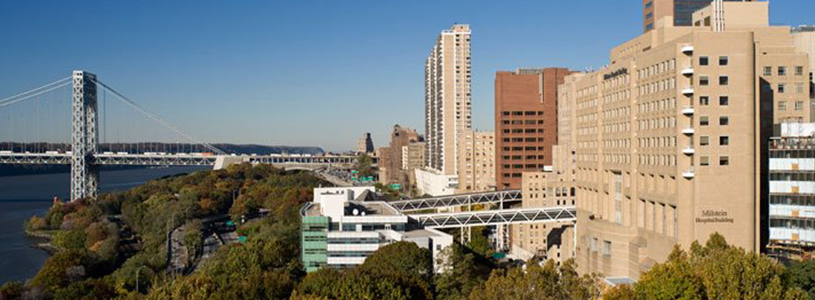Study Shows Low Risk of COVID-19 Transmission in Hospital Among Patients Undergoing Surgery
Feb 24, 2021

By June 2020, concerns about COVID-19 caused an estimated 41% of U.S. adults to delay or avoid medical care, including urgent or emergency care and routine care, according to the U.S. Centers for Disease Control and Prevention. But according to a recently published paper in the journal Annals of Surgery, researchers from New York-Presbyterian and Columbia University Vagelos College of Physicians and Surgeons found that despite considerable community spread of COVID-19 during the spring peak of the pandemic in New York City, the risk of acquiring COVID-19 in the hospital was low.
What the study found
The study looked at 501 patients who came to NewYork-Presbyterian/Columbia University Irving Medical Center for surgery between March 15 and May 15, 2020. The patients either had no symptoms and were presumed to be without COVID-19 or tested negative for the coronavirus before their procedure. Between March 15th and April 6th, preoperative testing was performed based on a patient’s medical history and the availability of a test; after April 6, preoperative testing was mandated for all patients undergoing surgery.
The authors found that only 1.8% of the patients developed COVID-19 in the two weeks after surgery. Additionally, more than half of these patients developed symptoms within two days after surgery, suggesting that their infection may have occurred before they came into the hospital. None of the patients who tested negative for the coronavirus on the day of surgery developed COVID-19 symptoms postoperatively, and all new cases occurred in patients who had surgery before the implementation of routine preoperative testing.
The researchers also found that COVID-19 infection around the time of surgery was associated with poor postoperative outcome, and that patients with diabetes, cardiovascular disease, and those having transplant surgery were at increased risk for acquiring COVID-19 after surgery.
What does this mean?
There was minimal risk of developing COVID-19 for patients who underwent surgery during the initial peak of the pandemic in New York City. Protocols like separating COVID-positive patients from those who do not have COVID, universal use of personal protective equipment for patients and staff, and enhanced environmental disinfection appeared to be effective in minimizing the risk of COVID-19 transmission in the hospital.
What is the main takeaway for patients?
Dr. Guy McKhann, a neurosurgeon at NewYork-Presbyterian/Columbia and lead author on the study, says patients should not delay needed surgery due to COVID-19 fears. “The relatively low rate of infection we experienced at our hospital during the peak of the pandemic in New York City may increase public confidence in seeking necessary medical care in controlled hospital environments, regardless of the rate of community transmission,” says Dr. McKhann, who is also associate professor of Neurological Surgery at Columbia University Vagelos College of Physician and Surgeons.
“It’s important for patients to know that, with appropriate infection prevention and control measures, hospitals are safe places to come for receiving necessary healthcare, even during the peaks of the pandemic,” says co-lead author Dr. Anil Lalwani, medical director of perioperative services at NewYork-Presbyterian/Columbia University Irving Medical Center.
“As a medical director of perioperative services, it is incredibly reassuring to find that we are protecting our patients when they are in the process of getting healthcare,” adds Dr. Lalwani, who is also vice chairman of Otolaryngology – Head & Neck Surgery and co-director of the cochlear implant program at Columbia University Vagelos College of Physicians and Surgeons. “Hopefully this will lessen some fears.”
Dr. Lalwani also notes the importance of coronavirus testing for surgical patients to prevent spread and avoid increased risk of surgical complications for patients with active COVID-19 infection.
More information
he study, titled “Risk of Acquiring Perioperative COVID-19 During the Initial Pandemic Peak: A Retrospective Cohort Study,” was published in the January 2021 issue of Annals of Surgery. Other authors: Lucas Axiotakis; Brett Youngerman; Randy Casals; Tyler Cooke; Graham Winston; Cory Chang; and Deborah Boyett. Individual affiliations are listed in the paper.
Media Contact:
Office of Communications [email protected]



